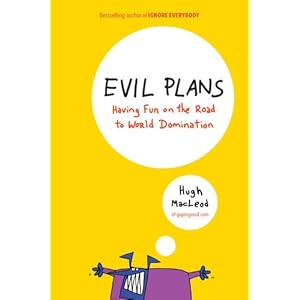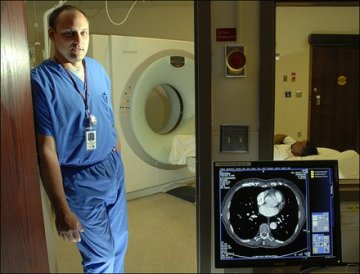Steve spoke at our 2010 Medical Fusion Conference, but before that event we had never met. I had seen his book and read excerpts and believed he would be a good person to plug into what we're doing with Medical Fusion, but I really didn't know much about Concierge Medicine and I didn't know any Concierge Medicine physicians personally.
For those who aren't familiar with the terminology, "Concierge Medicine" refers to the medical practice design where patients pay a retainer fee in exchange for exceptional access to their personal physicians. Physicians agree to limit their practice size to a few hundred patients and give their patients their cell phones, pagers, email addresses, and often make house calls in addition to yearly executive physicals and preventative medicine counseling. Concierge Medicine is sometimes called "Retainer Medicine" or "Direct Medicine."
Concierge Medicine has been growing over the last few years due to the frustrations associated with primary care-- for both patients and clinicians-- and the development of franchise models like MDVIP. However, whenever Concierge Medicine is discussed, critics are quick to point out it's weaknesses and cast Concierge Medicine physicians as unethical extortionists. As an example, in Steve's Concierge Medicine office in Tucson, Arizona, one of the newspaper clips hung on his wall is an article describing his medical practice, and a quote from a local academic physician describing Concierge Medicine as "medicine at its mercenary worst."
Interesting.
So is Concierge Medicine "mercenary" as its critics suggest or a new practice model that is saving primary-care medicine? Let's look at some of the major issues regarding Concierge Medicine and go from there...
1. Is it ethical for a patient to pay extra money for extra time with their physician?
Most discussions on Concierge Medicine are framed by asking whether it is ethical for physicians to charge "exorbitant" fees in order for their patients to see them. This is the political equivalent of those squirley political poll questions like, "Do you, as a voter, believe it would be good to have a tax-evading, draft-dodging, ignorant, narcissist as your next governor?" When the voter answers "no," the polling company reports that voters overwhelmingly are against the candidacy of politician X. The question frames the debate.
The problem when the discussion of Concierge Medicine begins this way is that physicians are automatically cast as villains. The "greedy" doctors are simply too money-obsessed to take care of anyone not willing or able to pay these incredibly high fees.
Bu what if the debate is turned around? What if it's not a "greedy doctor" who is demanding the fee? What if it's a patient with multiple chronic medical conditions that cannot be solved in the typical 10 minute primary-care visit who is pushing for the change? What if it's the patient requesting extra time with their physician and to ensure this extra time is willing to pay for the equivalent of 2-3 regular visits a month?
The fact is that Concierge Medicine is a market response to a very broken primary-care system in this country. Patients are driving this change as much as burned-out physicians. These patients are frustrated and dissatisfied with the current model, and are making their health a priority by investing money and time into their patient-physician relationship. Many of these patients have multiple medical issues and they need more time with their physician. They also need someone to help them coordinate their medical care, and have found Concierge Medicine to be a reasonable way to help them improve the healthcare system for themselves.
What's fascinating about this aspect of the debate is that the resource these patients are requesting-- time with their physician-- is the very resource that so many ethicists, consulting groups, and administrators stress is so important to patient satisfaction scores, proper diagnostics, reduced malpractice risk, reduced unnecessary testing, and overall improved clinical medicine. It's as if the patients read the research and simply got tired of waiting for the system to fix itself. The patients that gravitate to a Concierge Medicine practice are simply willing to put their money where there mouth is and pay for the extra time they know they need with their physician. The Concierge Medicine model is actually correcting one of-- if not the-- most glaring problem with modern medicine in the United States: a lack of significant time between patient and physician.
2. Isn't it more ethical for a physician to stay in the system instead of "opting out" with Concierge Medicine?
This question assumes that the basic primary-care model in the United States is working and those who choose Concierge Medicine practices are messing it all up for everyone else.
The unfortunate truth is that primary-care medicine as it is currently practiced in the United States is not working, not for those who opt out and choose Concierge Medicine or for anyone else. Those physicians and patients who have chosen Concierge Medicine aren't the cause of this problem, they're a response to the brokenness of the typical primary-care practice model. In fact, Concierge Medicine could not exist in a market where individuals were getting exceptional healthcare through third-party payers and the standard primary-care system. The fact that Concierge Medicine has gotten traction is evidence that there are plenty of physicians and patients (ie- willing payers) who are dissatisfied with the status quo.
Here's a very interesting twist to the debate about Concierge Medicine: if an individual wishes to condemn Concierge Medicine as unethical, does that same individual then defend the current primary-care system where patients are pushed through clinics like cattle and physicians are beholden to third-party payers? What is more ethical, a patient and physician agreeing on a set fee or a physician who is compromised by the cost-curtailing focus of a third-party payer? Which physician is the better advocate for the patient?
3. Isn't Concierge Medicine only for the rich?
The answer to this question really boils down to your definition of "rich."
Of course, there are individuals who have zero disposable income and are truly destitute. Concierge Medicine does not address this very real need. However, for most people, the issue is not that they lack the funds to afford a Concierge Medicine physician, it simply is that their priority system places greater emphasis on things like cigarettes, alcohol, entertainment, fashion, and luxury than health, and they spend their income in a manner consistent with their priorities.
This discussion reminds me of a letter to the editor that I recently read online written by Emergency Medicine resident Dr. Roger Starner Jones:
Dear Sirs:
During my last night’s shift in the ER, I had the pleasure of evaluating a patient with a shiny new gold tooth, multiple elaborate tattoos, a very expensive brand of tennis shoes and a new cellular telephone equipped with her favorite R&B; tune for a ring tone.
Glancing over the chart, one could not help noticing her payer status: Medicaid.
She smokes more than one costly pack of cigarettes every day and, somehow, still has money to buy beer. And our President expects me to pay for this woman’s health care?
Our nation’s health care crisis is not a shortage of quality hospitals, doctors or nurses. It is a crisis of culture – a culture in which it is perfectly acceptable to spend money on vices while refusing to take care of one’s self or, heaven forbid, purchase health insurance.
A culture that thinks I can do whatever I want to because someone else will always take care of me.
Regardless of what you think of Dr. Jones' letter, the point is that individuals make choices regarding the use of their disposable income, and many in our culture choose to place other priorities above healthcare.
Let's break this down...
MDVIP is the dominant franchise model for Concierge Medicine. Patients who are members of these practices pay $1500 per year for the privilege of being members of this practice model. Here's the math:
- $1500 per year = $125 per month
- $125 per month = $4.17 per day
- $4.17 per day = current price of a Starbucks expresso or a pack of cigarettes
So for what most people spend a day on such extraneous things as a cup of premiere coffee or an unhealthy indulgence like cigarettes, these same individuals could have their own personal Concierge Medicine physician.
Yes, there are individuals who cannot afford even this amount per month, and Concierge Medicine does not address this issue (although some are experimenting with a retainer-type practice coupled with indigent care and many Concierge Medicine physicians, including Dr. Knope, spend significant time providing free care to non-paying patients), but no practice model is perfect. Concierge Medicine could improve access to healthcare of a significant number of working people, if they would only choose to buy into the model.
Additionally, if a patient opens a Health Savings Account that is coupled with a high-deductible insurance plan, pre-tax dollars can be set aside to use towards the costs of a Concierge Medicine physician, making the retainer costs much less expensive for the average consumer.
In sum, Concierge Medicine is a growing trend that some consumers are using to maximize their healthcare experience. It is not a system that solves every problem, but I believe it is ethical and it is a solution for some patients. Instead of criticizing the patients and physicians involved with Concierge Medicine, we should work together to continue to find additional ways to solve the problems with the current healthcare system.
In future posts we'll be looking more into Concierge Medicine and other non-traditional practice models and explaining how you can incorporate these models into your current practice.
 Accidental Billionaires?
Accidental Billionaires? Email This Article tagged:
Email This Article tagged:  Ben Mezrich,
Ben Mezrich,  Facebook,
Facebook,  Mark Zuckerberg,
Mark Zuckerberg,  The Accidental Billionaires |
The Accidental Billionaires |  Apr 6, 3:00 PM
Apr 6, 3:00 PM 









